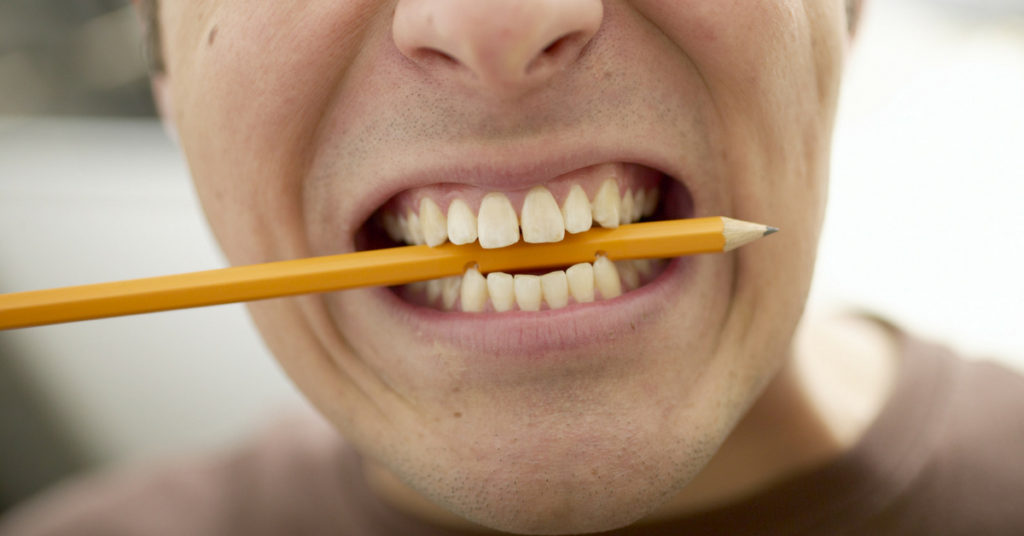Anxiety & Bruxism … Why Are They Connected?
Bruxism – grinding and clenching teeth – is more common in people with depression and anxiety disorders, but does anxiety actually cause this problem? Doctors admit that they don’t really know.

The medical community isn’t certain what comes first, anxiety or grinding and clenching teeth. The truth is, doctors don’t really know why some people grind and clench their jaws and don’t know for sure whether bruxism and temporomandibular joint (TMJ) issues are side effects of anxiety.
What isn’t in question is that about one in three people grind their teeth or clench their jaw thousands of times each night while sleeping. Doing this can put about 250 pounds of force on their teeth, causing wear and tear as well as joint and muscle problems. When you grind your teeth at night, you might not know it, but you will experience many symptoms, including: head and neck aches, jaw and ear pain, sensitive teeth and ringing in your ears. Of course, a dentist can look at your teeth and see evidence that you have a habit of grinding and clenching teeth.
According to doctors, those at risk for bruxism share common characteristics such as: nervousness, inability to handle stress, anger problems, aggression and a competitive nature. It’s also common for people who have sleeping problems, like snoring and sleep apnea, to suffer from bruxism as well.
Why do anxiety and teeth grinding tend to go hand in hand? Experts say a nerve runs from your jaw muscles to the part of your brain that controls the fight-or-flight response, which kicks in when you are stressed. In fact, research has revealed that bruxism can begin after a trauma, such as a car accident. Another study showed that preschoolers who were starting school for the first time and who had trouble adjusting and were withdrawn were more susceptible to teeth grinding.
Bruxism and anxiety feed off each other, too. When someone grinds their teeth at night, the brain wakes from a deep stage of sleep and moves to a lighter stage. Not getting enough deep sleep means that anxiety sufferers will feel even more anxious, experts say.
To treat bruxism, if you also have anxiety, you should get help controlling your anxiety through therapy and medication. Cognitive-behavior therapy can help change a person’s reaction to stress and, in turn, help them stop grinding and clenching teeth. A more immediate action if you know you suffer from bruxism is to visit your dentist and protect your teeth by wearing a mouth guard at night. Visit www.sleepright.com to find a mouth guard option that works best for you.





